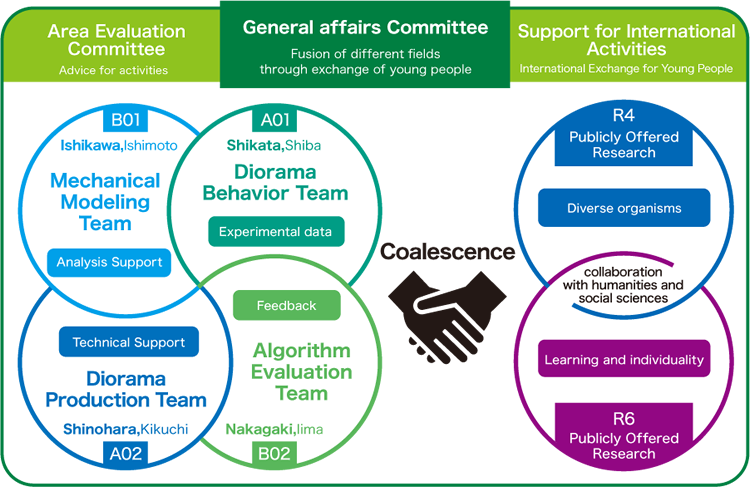Grant-in-Aid for Transformative Research Areas (A)
Outline of the area
Intelligence broadly describes an ability to adapt to the environment.
In this sense, single-celled organisms like protists (eukaryotic unicellular organisms) have a prototype of intelligence, or rather they can demonstrate skillful behavior in complex field environments due to their sophisticated evolution over hundreds of millions of years. This behavioral ability seems to be inherited as ‘single-cellular’ behavior in multicellular organisms (sperm motility during fertilization, cell motility in the internal environment, etc.).
In this Research Area, we define ‘proto-intelligence’ as the fundamental adaptability to the environment that single-celled organisms potentially possess. We name such artificial conditions as ‘diorama environments’, where organisms can show their potential proto-intelligence. Diorama environments may mimic the complexity of a habitat but in a setup designed for testing proto-intelligence. For example, one such instance is that of an amoeboid organism of slime mold, which displays the ability to find the shortest path in a maze of diorama environments.
Since the mechanisms of proto-intelligence can often be formulated using coupled kinetic equations of cell motion and the environment, such environment-coupled mechanics will be thoroughly applied.
We will challenge and advance the algorithms (heuristics) of proto-intelligence.
(* Ethological dynamics in diorama environments: the science of designing Diorama environments to awaken porto-intelligence, and describe the mechanism with equation of motion)

 Ethological dynamics in diorama environments
Ethological dynamics in diorama environments